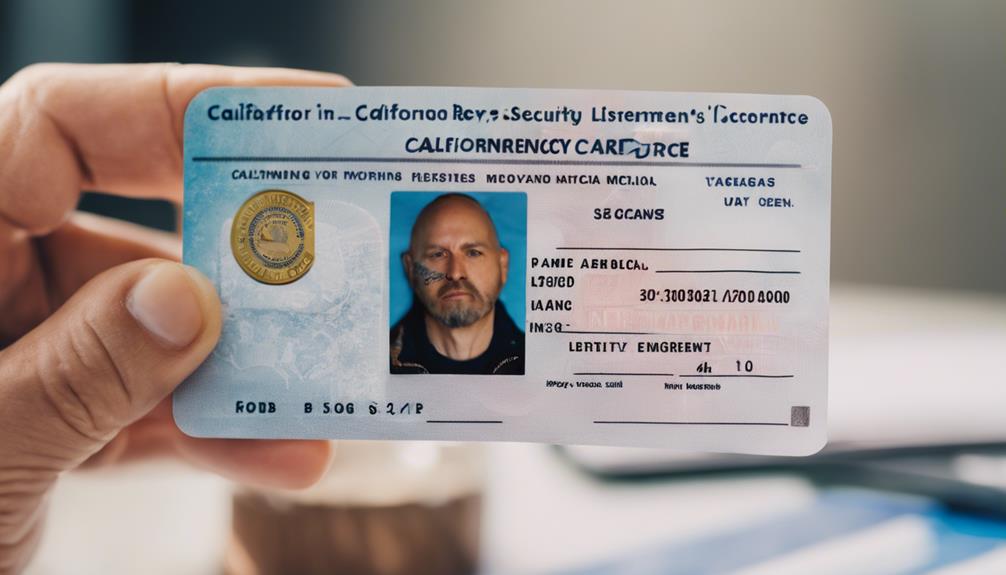To apply for California Emergency Medicaid, ensure you have a valid photo ID, residency confirmation like utility bills, and income proof such as pay stubs. Submit birth certificates for household composition verification and align all documents with eligibility criteria. Provide up-to-date financial information, proof of residency with utility bills or rental agreements, and current identification like driver's license or passport. Detailed medical records, physician letters, and a treatment plan are essential for demonstrating medical necessity. Having all required documents organized will speed up your application process and access to necessary healthcare services.
Eligibility Verification Documents
To verify your eligibility for California Emergency Medicaid, you must provide specific documents as outlined by the state guidelines. The eligibility criteria for California Emergency Medicaid typically include proof of identity, residency, income, and household composition.
To begin the application process, you'll need to provide a valid photo ID, such as a driver's license or passport, to confirm your identity. Additionally, you'll be required to submit documents that establish your residency in California, like a utility bill or lease agreement.
For income verification, you may need to provide recent pay stubs, tax returns, or a letter from your employer. If you're unemployed, documentation from the unemployment office can be used.
Household composition can be confirmed by submitting birth certificates, marriage certificates, or documents showing legal guardianship. These documents are crucial in determining your eligibility for California Emergency Medicaid and ensuring that you receive the necessary healthcare assistance.
Income and Asset Proof
Verifying your income and assets is a critical step in the California Emergency Medicaid application process. To begin the application process, you'll need to provide documentation that accurately reflects your financial situation. This includes proof of income such as recent pay stubs, tax returns, or a letter from your employer outlining your earnings.
Additionally, documentation of your assets, such as bank statements, property deeds, or information on any investments, is required.
When submitting your documentation, ensure that all information is current and accurately represents your financial status. Incomplete or outdated documentation can delay the processing of your application.
It's essential to be thorough and organized when gathering these materials to streamline the application process.
Proof of California Residency
Submitting valid proof of California residency is a crucial requirement in the California Emergency Medicaid application process. Residency verification is essential to ensure that applicants genuinely reside within the state and are eligible for emergency Medicaid benefits.
To confirm your residency, you can provide documents such as utility bills, rental agreements, or mortgage statements that display your California address. These documents serve as address confirmation, showing that you live in California and are therefore eligible for Emergency Medicaid coverage.
When submitting residency verification, it's important to ensure that the documents are recent and clearly display your name and current address. Acceptable proofs of residency may include a driver's license or state ID card, voter registration card, or recent bank statement.
Providing accurate and up-to-date residency documentation helps streamline the application process and ensures that you meet the residency requirements set forth by California's Emergency Medicaid program.
Identification Documentation
Ensuring the accuracy of your identification documentation is imperative when applying for California Emergency Medicaid. During the application process, having valid identification is crucial to verify your identity and eligibility for emergency healthcare services. In emergency situations, quick access to Medicaid can be vital, making it essential to have all the necessary identification documents readily available.
When applying for California Emergency Medicaid, typical identification documents that may be required include a driver's license, state-issued ID card, passport, or birth certificate. These documents help establish your identity and residency in California, essential criteria for qualifying for emergency Medicaid assistance. It's important to ensure that these documents are current and valid to prevent any delays in the application process.
In emergency situations, time is of the essence, and having your identification documentation in order can expedite the process of receiving the necessary medical care. By being proactive and organized with your identification documents, you can navigate the California Emergency Medicaid application process more smoothly when urgent healthcare needs arise.
Medical Necessity Documentation
Validating the essential medical necessity documentation is a critical step when applying for California Emergency Medicaid. To support your application, you'll need to provide detailed medical records that clearly outline the diagnosis, treatment history, and prognosis. These records should demonstrate the urgency and importance of the medical care needed.
Additionally, including physician letters that explain the medical necessity of the required treatment can significantly strengthen your application.
In conjunction with medical records and physician letters, having a comprehensive treatment plan is crucial. This plan should outline the specific procedures, medications, or therapies that are necessary to address the medical condition effectively.
Furthermore, including any relevant financial documents that showcase your inability to cover the medical expenses independently is essential to demonstrating the need for emergency Medicaid assistance.
Conclusion
Overall, applying for California emergency Medicaid requires specific documentation to verify eligibility and necessity.
One interesting statistic to note is that California has one of the highest rates of Medicaid enrollment in the country, with over 10 million people covered by the program.
This shows the importance of having a streamlined application process and ensuring that all necessary documents are in order to receive timely assistance.
